In this alternate timeline, Napoleon chooses to focus on consolidating his empire rather than invading Russia. This decision leads to a thriving French Empire that dominates European politics.
But how would history unfold differently in this scenario? Would Napoleon's rule last, or would challenges like nationalism and rebellion threaten his reign?
The French Empire's Stability
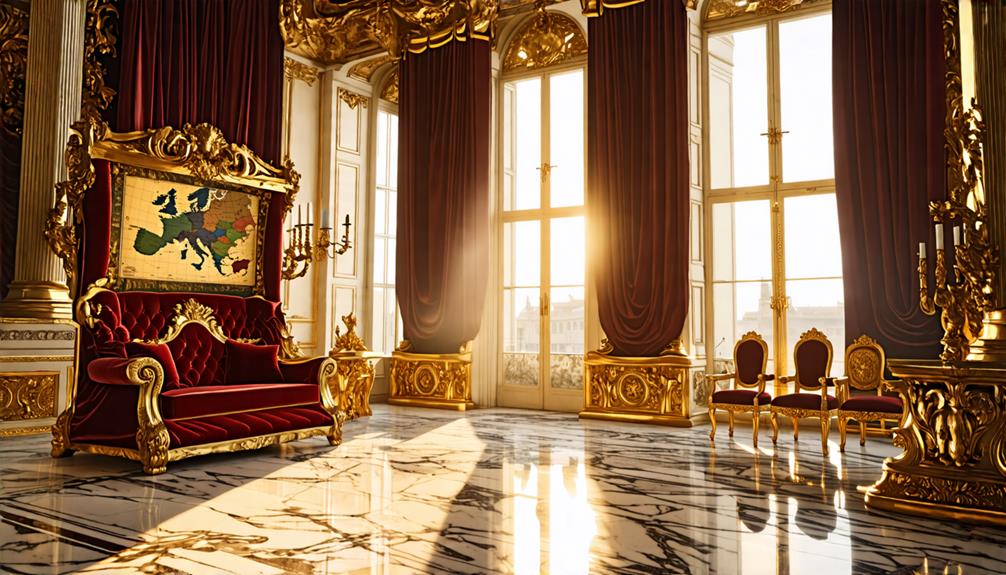
One theory is that if Napoleon had focused on consolidating his French Empire instead of continuously expanding, it may have resulted in a more stable and longer-lasting regime. By securing existing territories, he could have potentially strengthened France's position through effective governance, alliances, and suppressing internal opposition.
However, it's also possible that even a consolidated French Empire would have eventually faced significant challenges from other European powers seeking to contain France's influence.
Interestingly, while Napoleon himself didn't adopt this consolidation strategy, his nephew Napoleon III later pursued a somewhat similar approach during the Second French Empire in the mid-19th century, focusing more on economic development and diplomacy than military conquests.
Economic Growth and Development
Had Napoleon focused on consolidating his empire rather than expanding it, some historians theorize that he may have been able to promote economic growth and development within France and its territories.
By investing in infrastructure projects, encouraging trade and commerce, supporting industrial and agricultural innovations, establishing a stable financial system, and fostering education and scientific advancements, Napoleon could have potentially strengthened France's economy and global position.
It's worth noting that similar efforts to prioritize internal improvements over territorial expansion were undertaken by other leaders in later periods.
For example, after the Meiji Restoration in Japan during the late 19th century, the government concentrated on modernizing and industrializing the country, leading to significant economic growth and development.
Diplomatic Relations With Britain
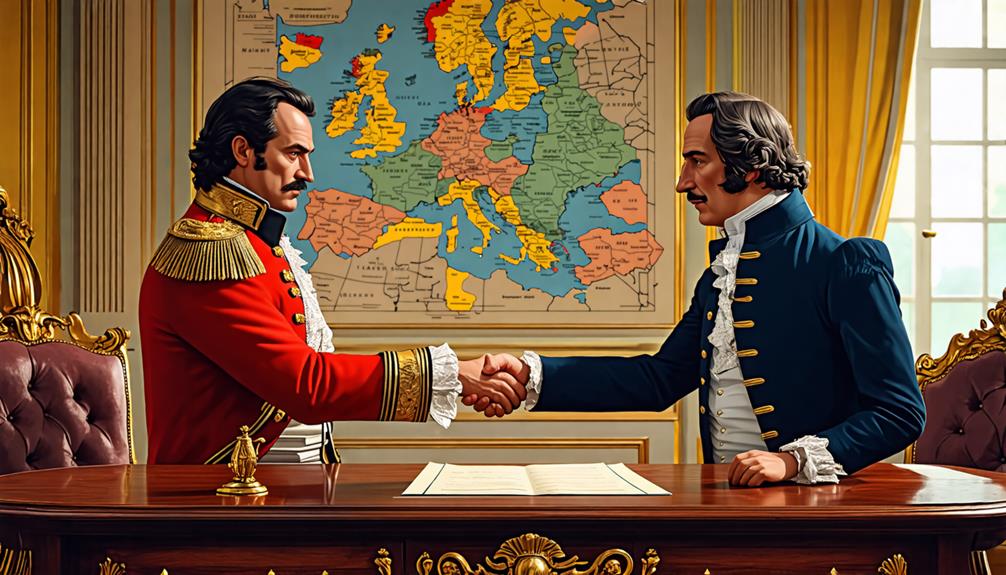
If Napoleon had sought to normalize diplomatic relations with Britain, it's possible that a grand bargain could have been struck between the two great powers. France may have acknowledged British naval supremacy in exchange for Britain recognizing French dominance over continental Europe.
While this scenario didn't play out under Napoleon, the Congress of Vienna in 1815 did result in a period of relative peace and stability in Europe. The congress was convened by the major European powers after Napoleon's defeat, with the goal of redrawing the continent's political map and establishing a new balance of power.
One theory is that had Napoleon pursued diplomacy with Britain earlier, it could have meant a different outcome for the Napoleonic Wars and altered the course of European history. It's also possible that such an agreement may have been short-lived, as both nations had competing interests and a long history of rivalry.
Consolidating Power in Germany
If Napoleon had consolidated power over the German states, it may have led to significant changes in European history. One theory is that a unified, French-aligned Germany could have become a dominant force on the continent, potentially leading to a very different balance of power in the 19th and 20th centuries.
On the other hand, some historians believe that forcibly integrating the German states into the French Empire might've sparked even greater resistance and nationalism among the German people. This could have ultimately weakened Napoleon's control and hastened his downfall.
It's worth noting that similar attempts to unify Germany under a single ruler did occur later in the 19th century. Otto von Bismarck successfully united the German states under Prussian leadership in 1871, although this was driven by German nationalism rather than French domination.
Mediterranean Dominance
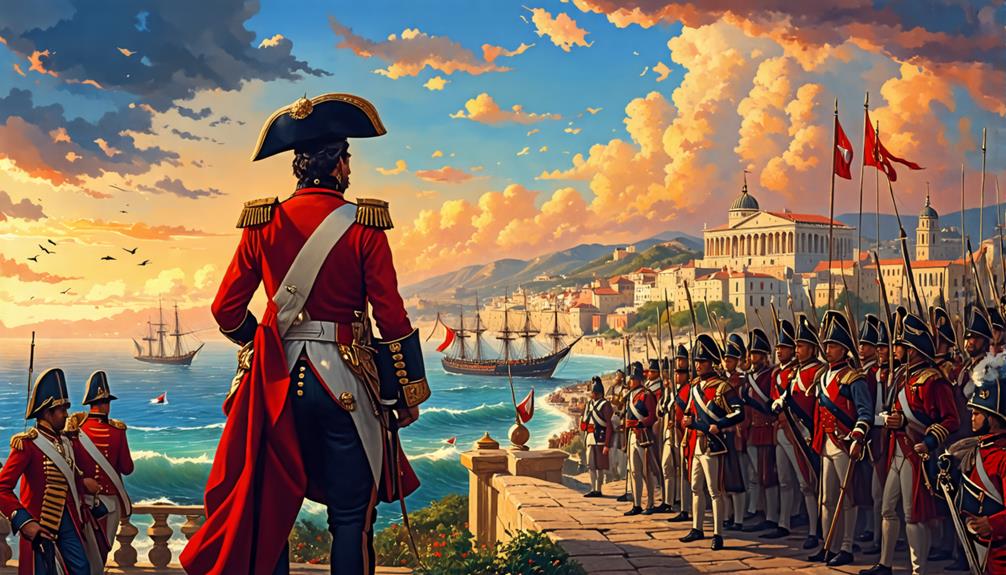
If Napoleon had focused on solidifying French control over the Mediterranean instead of invading Germany, it could have significantly altered the course of European history. One theory is that by securing key strategic locations like Egypt, Malta, Italy, and Iberia, France may have been able to maintain a dominant position in the region for an extended period.
However, it's also possible that this Mediterranean strategy would have eventually provoked a strong coalition response from other European powers like Britain, Austria, and Russia, leading to a protracted conflict.
Interestingly, fascist Italy under Mussolini did attempt to exert control over the Mediterranean region in the 1930s and early 1940s, although under very different circumstances and with ultimately disastrous results for Italy in World War II.
Technological Advancements
In an alternate timeline, Napoleon's rise to power in Europe might've coincided with rapid technological progress in areas like steam power, manufacturing, transportation, agriculture, and military equipment. This confluence of events could have significantly altered the geopolitical landscape and balance of power on the continent and beyond.
One possibility is that Napoleon's France, bolstered by these cutting-edge technologies, would have been even more formidable and harder to defeat. Alternatively, if these advancements had spread to other European nations, it might've leveled the playing field and checked French ambitions.
It's worth noting that similar scenarios of rapid technological change enabling the rise of dominant powers have occurred at other points in history. A prominent example is the United States' ascent to superpower status in the late 19th and early 20th centuries, fueled by its leadership in industries like steel production, railroads, automobiles, and electricity.
Cultural Influence and Legacy
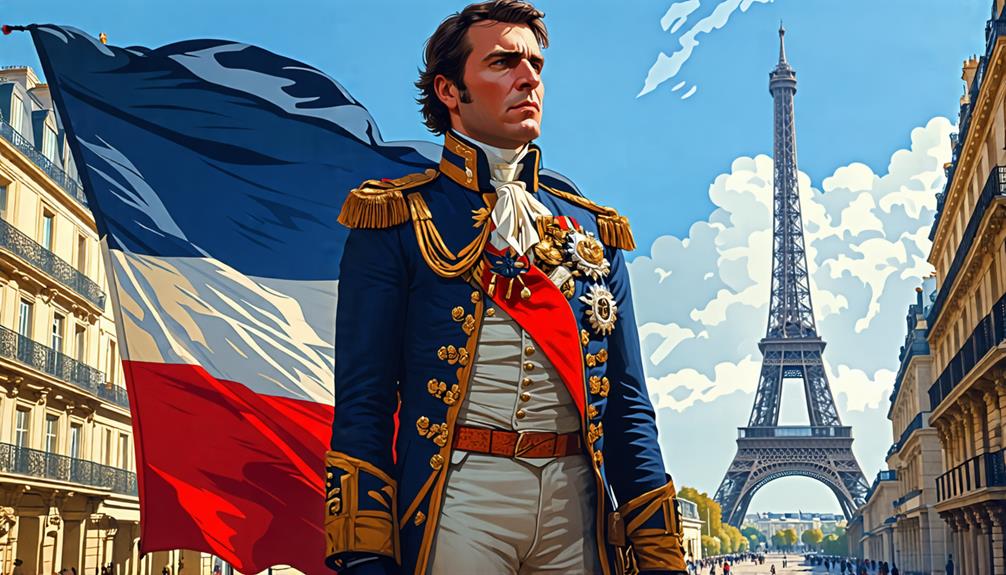
Had Napoleon solidified his empire rather than overreaching, the cultural landscape of France and Europe could have taken a vastly different path.
One theory suggests that France might've maintained its preeminence in the realms of art, fashion, and gastronomy for an extended period.
Another possibility is that Napoleon's alternate legacy would have placed greater emphasis on elegance and refinement, overshadowing the focus on militarism and territorial expansion.
It's worth noting that similar attempts to establish a far-reaching empire were made by other historical figures in later years, such as Hitler's Third Reich in the 20th century.
Potential Challenges and Threats
Had Napoleon focused on consolidating his empire rather than continuing to expand, he'd have still encountered significant obstacles. One theory is that growing nationalism in conquered territories could have fueled resistance movements against French rule. Additionally, the economic strain of administering such a vast empire may have weakened France internally and left it vulnerable.
Some historians believe Napoleon's own court would have remained rife with rivalries and scheming, potentially undermining his authority. Ongoing conflicts with Britain, Russia, and other European powers might've continued to flare up periodically. And even within France itself, the discontent that would later erupt in the revolutions of 1830 and 1848 could have manifested as uprisings against Napoleon's regime.
While Napoleon never successfully consolidated his empire long-term, the 20th century saw others pursue similar goals. Nazi Germany and Imperial Japan both sought to establish hegemony over Europe and Asia respectively during World War II. Though the specifics differed from Napoleon's time, they too found that holding conquered territory against resistance is often more difficult than acquiring it.
Long-term Historical Impact
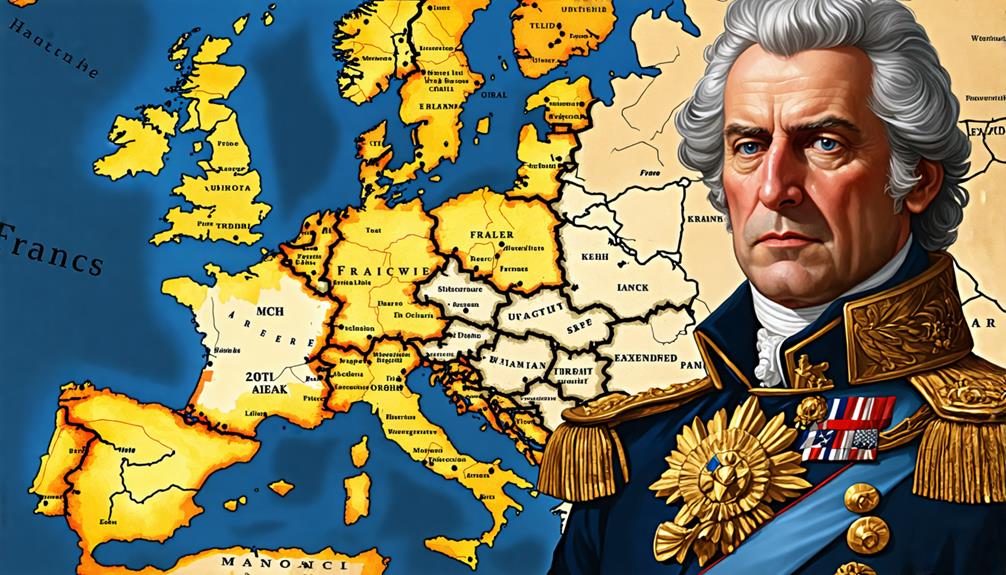
If Napoleon had successfully consolidated his empire, it could have led to a more stable French-dominated Europe in the 19th century. One theory is that this would have delayed or prevented the rise of rival powers like Prussia and Austria, significantly altering the course of European history.
It's interesting to consider that while Napoleon himself didn't achieve this, some argue that a similar scenario did play out to a degree in the 20th century under Nazi German occupation of much of Europe. However, the specifics and the ultimate outcome were quite different.
Conclusion
You might argue that Napoleon's ambition was insatiable and consolidation wasn't in his nature.
However, had he channeled that drive inward, he could've built a stable, prosperous empire that endured.
By focusing on economic growth, diplomatic finesse, and cultural influence rather than conquest, Napoleon would've left an indelible mark on history as a visionary leader who transformed Europe through unity and progress, rather than as a cautionary tale of unchecked ambition and ultimate defeat.
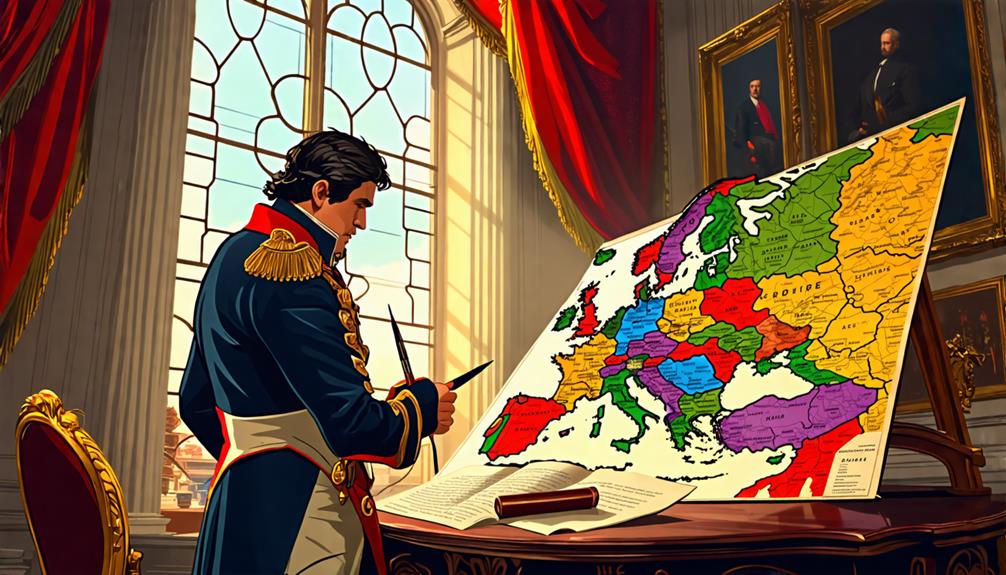
Leave a Reply